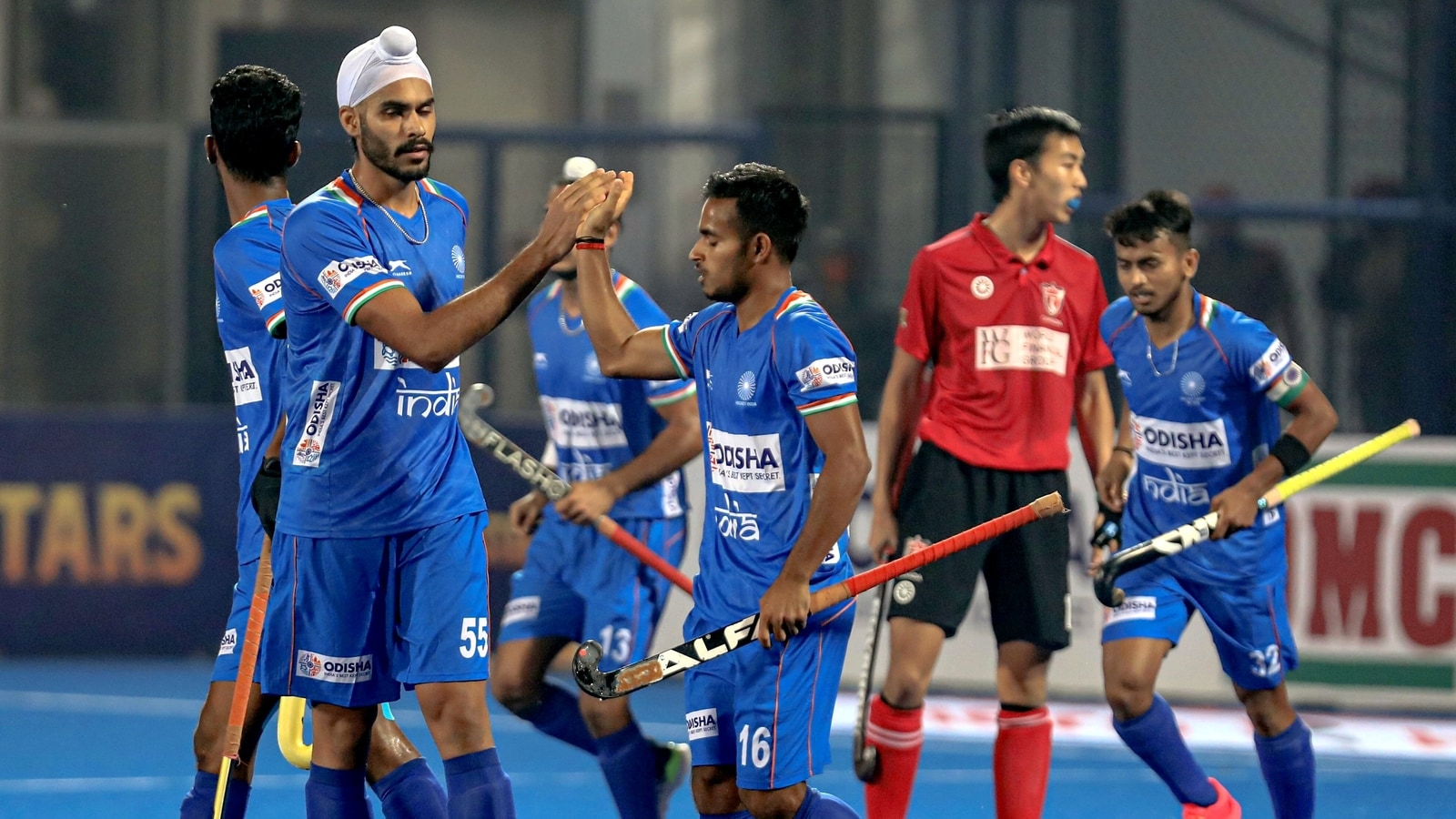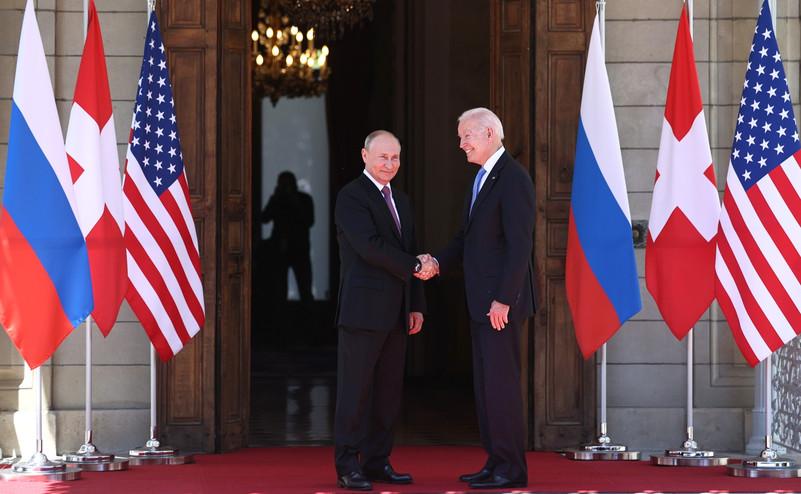Russia's biggest enemy? Its own economy
The Kremlin reacted with irritation to president Joe Biden's recent description of Russia as "an economy that has nuclear weapons and oil wells and nothing else", but the comment revealed a lot about changing US policy and the recent decision to lift opposition to the Nord Stream 2 gas pipeline in particular.
Like Obama before him, Biden sees Russia as a regional power hampered by internal weakness, not a threat worth spoiling relations with Germany over, especially when there is a genuine strategic challenger in the shape of China to contend with. Russia is a second order problem to be parked and managed.
There is a lot to be said for this conclusion, even by the standards Russia has set for itself.
In 2007, near the end of Putin's second presidential term, the Kremlin approved a national economic strategy that envisaged Russia becoming one of the world's top five economies by 2020. Propelled by average growth rates of six percent a year, Russia would establish itself a major international financial centre and a global leader in technological innovation.
In reality, Russia has fallen woefully short of its own targets. It remains eleventh in the league table of world economies (exactly where it was in 2007) having been overtaken in the meantime by India and South Korea.
Its record on innovation has been unspectacular – up a mere seven places to 47th in the Global Innovation Index – and it has continued to be a net exporter of capital rather than a magnet for international finance. Growth rates have barely averaged more than one percent while living standards have slumped.
Instead of rising to the top tier of world economic power, Russia has achieved stagnation at best.
Two decades of stagnation
This failure is all the more glaring because Russia's leaders have been fully aware of the reasons for its underlying economic weakness for more than two decades. An excessive dependency on energy exports and the lack of technological innovation were themes of Vladimir Putin's first state of the nation address in 2000, but high oil prices in the years that followed meant little incentive for reform.
Dmitry Medvedev likewise lamented his country's "primitive economy based on raw materials and endemic corruption" at the start of his one-term presidency. He at least tried to act on that concern.
The Skolkovo Innovation Centre launched on the outskirts of Moscow in 2010 was intended to be Russia's answer to Silicon Valley and a means of converting the country's strong scientific base into commercial success. But, like many previous attempts at top-down at economic modernisation in Russia, it has delivered very little in the way of meaningful change.
What Russia's leaders has been unwilling to do at anything more than a rhetorical level is to address the serious institutional weaknesses that stifle entrepreneurship and the limit the growth of an independent business sector.
'Corporate-raiding', Russian-style
The most important of these is the lack of a fair and independent judicial system capable of enforcing contracts and protecting property rights. Tens of thousands of businesses are seized every year in a particularly Russian form of corporate raiding, known as reiderstvo, in which business owners are arrested on false charges and their assets confiscated with the collusion of corrupt judges, police officers and other public officials.
Although Putin has acknowledged the damage done to Russia's economic interests by this practice, a recent study by a team of academics from the Terrorism, Transnational Crime and Corruption Center (TraCCC) at George Mason University has highlighted what it describes as a "pandemic of illegal raiding" with a 135 percent increase in the number of cases in 2019 alone.
The impact on business confidence is devastating. As the report notes, Putin's own business ombudsman has reported that: "Over 80 percent of entrepreneurs consider doing business in the country unsafe, [and] unfortunately, this number is growing."
It's part of the reason why net capital outflows from Russia rose to $47.8bn [€40.4bn] last year.
Putin's inaction can be explained by the nature of the system he has created and his own willingness to use reiderstvo as an instrument of political control and elite enrichment. This has spawned a culture of imitation and impunity across Russian society as a whole.
While the most famous examples, such as Yukos Oil and Hermitage Capital, have involved the Kremlin directly, the large majority of raids are organised at a local level by private individuals using their connections and wealth to take over companies and destroy competitors.
These affect businesses large and small. Examples cited in the TraCCC study include the attack on Russia's largest ammonia producer, TogliattiAzot (ToAZ), by a rival company Uralchem, and the 2019 seizure of a transport enterprise in Magadan region with the collusion of the local FSB.
Russia's poor business climate already puts a low cap on its growth potential.
The impact will become even more serious as the world moves rapidly over the next decade towards a post-carbon future. Oil and gas revenues usually account for around 40 percent of the federal budget, yet very little effort has been made to generate new sources of national wealth capable of replacing them.
With the transition to renewable energy likely to accelerate after the COP26 summit in November, Russia is acutely exposed to the coming shifts in global demand.
Putin's former finance minister, Alexei Kudrin, tried to make the case for liberalisation and reform four years ago by posing Russia's poor record of technological innovation as the main challenge to its future sovereignty.
But his pleas fell on deaf ears. As the imprisonment of Alexei Navalny and the recent adoption of a more hawkish National Security Strategy show, Putin remains preoccupied with regime survival and phantom threats to Russia's sovereignty from the West.
It is this failure to grapple with its own internal problems that Biden was referring to in his assessment of Russia's weakness. There are few indications that it is likely to change.
Russia's biggest enemy? Its own economy
The Kremlin reacted with irritation to president Joe Biden's recent description of Russia as "an economy that has nuclear weapons and oil wells and nothing else", but the comment revealed a lot about changing US policy and the recent decision to lift opposition to the Nord Stream 2 gas pipeline in particular.
Like Obama before him, Biden sees Russia as a regional power hampered by internal weakness, not a threat worth spoiling relations with Germany over, especially when there is a genuine strategic challenger in the shape of China to contend with. Russia is a second order problem to be parked and managed.
There is a lot to be said for this conclusion, even by the standards Russia has set for itself.
In 2007, near the end of Putin's second presidential term, the Kremlin approved a national economic strategy that envisaged Russia becoming one of the world's top five economies by 2020. Propelled by average growth rates of six percent a year, Russia would establish itself a major international financial centre and a global leader in technological innovation.
In reality, Russia has fallen woefully short of its own targets. It remains eleventh in the league table of world economies (exactly where it was in 2007) having been overtaken in the meantime by India and South Korea.
Its record on innovation has been unspectacular – up a mere seven places to 47th in the Global Innovation Index – and it has continued to be a net exporter of capital rather than a magnet for international finance. Growth rates have barely averaged more than one percent while living standards have slumped.
Instead of rising to the top tier of world economic power, Russia has achieved stagnation at best.
Two decades of stagnation
This failure is all the more glaring because Russia's leaders have been fully aware of the reasons for its underlying economic weakness for more than two decades. An excessive dependency on energy exports and the lack of technological innovation were themes of Vladimir Putin's first state of the nation address in 2000, but high oil prices in the years that followed meant little incentive for reform.
Dmitry Medvedev likewise lamented his country's "primitive economy based on raw materials and endemic corruption" at the start of his one-term presidency. He at least tried to act on that concern.
The Skolkovo Innovation Centre launched on the outskirts of Moscow in 2010 was intended to be Russia's answer to Silicon Valley and a means of converting the country's strong scientific base into commercial success. But, like many previous attempts at top-down at economic modernisation in Russia, it has delivered very little in the way of meaningful change.
What Russia's leaders has been unwilling to do at anything more than a rhetorical level is to address the serious institutional weaknesses that stifle entrepreneurship and the limit the growth of an independent business sector.
'Corporate-raiding', Russian-style
The most important of these is the lack of a fair and independent judicial system capable of enforcing contracts and protecting property rights. Tens of thousands of businesses are seized every year in a particularly Russian form of corporate raiding, known as reiderstvo, in which business owners are arrested on false charges and their assets confiscated with the collusion of corrupt judges, police officers and other public officials.
Although Putin has acknowledged the damage done to Russia's economic interests by this practice, a recent study by a team of academics from the Terrorism, Transnational Crime and Corruption Center (TraCCC) at George Mason University has highlighted what it describes as a "pandemic of illegal raiding" with a 135 percent increase in the number of cases in 2019 alone.
The impact on business confidence is devastating. As the report notes, Putin's own business ombudsman has reported that: "Over 80 percent of entrepreneurs consider doing business in the country unsafe, [and] unfortunately, this number is growing."
It's part of the reason why net capital outflows from Russia rose to $47.8bn [€40.4bn] last year.
Putin's inaction can be explained by the nature of the system he has created and his own willingness to use reiderstvo as an instrument of political control and elite enrichment. This has spawned a culture of imitation and impunity across Russian society as a whole.
While the most famous examples, such as Yukos Oil and Hermitage Capital, have involved the Kremlin directly, the large majority of raids are organised at a local level by private individuals using their connections and wealth to take over companies and destroy competitors.
These affect businesses large and small. Examples cited in the TraCCC study include the attack on Russia's largest ammonia producer, TogliattiAzot (ToAZ), by a rival company Uralchem, and the 2019 seizure of a transport enterprise in Magadan region with the collusion of the local FSB.
Russia's poor business climate already puts a low cap on its growth potential.
The impact will become even more serious as the world moves rapidly over the next decade towards a post-carbon future. Oil and gas revenues usually account for around 40 percent of the federal budget, yet very little effort has been made to generate new sources of national wealth capable of replacing them.
With the transition to renewable energy likely to accelerate after the COP26 summit in November, Russia is acutely exposed to the coming shifts in global demand.
Putin's former finance minister, Alexei Kudrin, tried to make the case for liberalisation and reform four years ago by posing Russia's poor record of technological innovation as the main challenge to its future sovereignty.
But his pleas fell on deaf ears. As the imprisonment of Alexei Navalny and the recent adoption of a more hawkish National Security Strategy show, Putin remains preoccupied with regime survival and phantom threats to Russia's sovereignty from the West.
It is this failure to grapple with its own internal problems that Biden was referring to in his assessment of Russia's weakness. There are few indications that it is likely to change.











